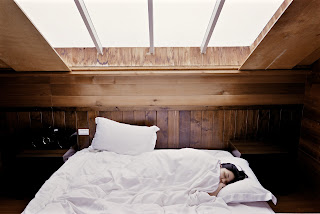The importance of proper hydration
The health benefits of water are undeniable. Every cell in your body needs water to function. Cells need substantial hydration levels to function at their best. Your body uses water to detoxify itself. Dehydration is a major cause of a variety of symptoms like headaches, fatigue, poor sleep quality, indigestion and constipation.Dehydration may lead to weight gain
Dehydration can lead to weight gain. This happens because fat metabolism occurs within the liver. When the liver does not have enough water to clean itself and the rest of the body, it will struggle to perform some of its most important tasks. This is clearly demonstrated by the way that repeated excessive alcohol consumption will lead to cirrhosis (liver damage). Healthy livers are better at metabolizing fat into usable energy. This is why drinking more water is one of my top methods to reduce body fat.Fatty liver disease
A fatty liver, or hepatic steatosis, is a disease where too much fat has accumulated in the liver. Diet and exercise plays a key role in preventing the development of fatty liver disease. Water does too because it helps the liver to keep itself clean. Water is your liver's best friend.Drinking the right liquids is essential for optimum health: Many popular drinks won't help to keep you hydrated
Drinks with too much sugar won't hydrate you
The best way to re-hydrate is to consume enough liquids. The type of liquid that you drink will determine whether or not it will hydrate you. Sodas that are high in sugar, for example, will have a positive effect on hydration. These drinks can actually dehydrate you even more. The reason for this is because your body will need more water to dilute all of that sugar.It would take 69 liters of water to dilute 500 ml of soda into normal blood glucose levels
Your body has around 5 liters of blood at any given time. Less than a teaspoon (4 grams) of sugar should be in that blood. Compare that to 11 grams of sugar per 100 grams in the average soda. This means that the average soda has 137.5 times more sugar than what is normally found in your blood per milliliter. By that math, it would take 69 liters of water to dilute the sugar content of 500 milliliters of soda to natural blood glucose levels. Of course, most of the sugar isn't diluted. It is quickly stored as glycogen in the muscles and liver or converted to fat to correct the blood-sugar balance. For this reason, drinks that are high in sugar do not hydrate the body very well.Drinks that are high in unhealthy ingredients like colorants and artificial flavors also have a dehydrating effect on your body
Think about this: Your pee is a lot lighter than the unhealthy drinks that you consume with darker colors. That means that more water is needed to wash away all of these nasty colorants. More water is also needed to cleanse the body from the unhealthy flavorings that aren't reflected in a dink's color. Since more water is redirected to the detoxification process to clear out all of these negative ingredients, less of it is used to replenish the body's hydration stores.For the above reasons, making sure that your hydration methods contain less harmful ingredients will increase your body's ability to use that water.
Bonus water and hydration tips
It is possible to drink too much water
Your body loses a lot of water through sweat, detoxification, breathing (water vapor is released every time you exhale) and the metabolizing of many chemical and hormonal processes in the body. This is why you should make sure that you give your body enough water to do everything without hindrance. It is also possible, though, to be drinking too much water. This could dilute your blood so much that its nutrient content drops. Too much water can also wash away precious nutrients. Learn more about the possibility of drinking too much water here.
Dehydration reduces physical performance
Dehydration could be the primary cause of why you might feel cold or sick after exercise (click the links to see more possible causes).Water is not the only good thing that you lose through sweat
Sweating is beneficial because it helps the body to get rid of toxins and replenish skin health. You need to replenish the good things that sweat causes your body to lose, such as water. Water is not the only thing you lose through sweat. You also lose precious electrolytes and minerals - which also need to be replaced.
Spice up your hydration without consuming unhealthy drinks
Try eating more healthy foods that are naturally hydrating like lettuce and spinach. Add lemon to your water for more health benefits or exchange unhealthy drinks for healthier alternatives like green tea.
You might not think that a single can of soda or an alcoholic beverage will impact your health that much, but these habits become addictive very quickly. These choices might feel like one drop in the pond, until we realize that the entire pond is made up of little drops. Stay Strong!
 |
| Support our website and buy these awesome Socks. |




